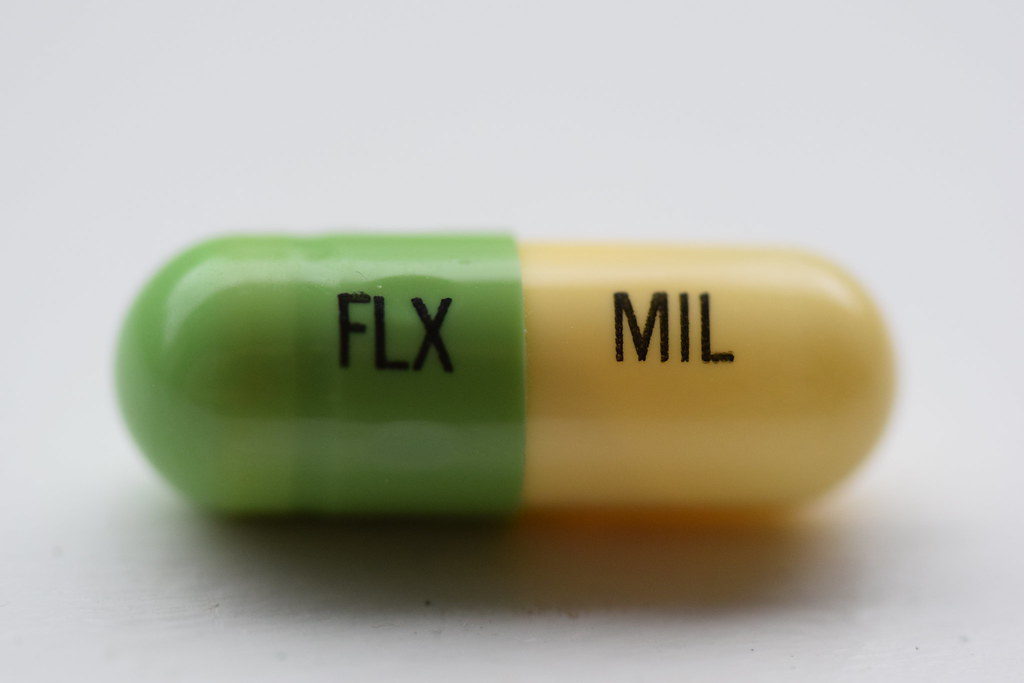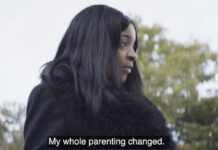A 16-week study on the antidepressant fluoxetine (Prozac) found that it was no better than placebo for improving repetitive behaviors in children diagnosed with autism spectrum disorders (ASD). The research was led by Dinah S. Reddihough, a professor and pediatrician at the University of Melbourne, Australia. The study was published in the top-tier medical journal JAMA.
UCSF Professor and psychiatrist Bryan King—whose research focuses on ASD—published a related editorial in JAMA. He writes that these findings “will challenge the field to reconcile the limited performance of the drug with long-standing utilization patterns.”
King continues,
“Frequent use of these medications continued despite a Cochrane review, highlighted in recent practice guidelines for ASD, that concluded there was no evidence of effect of SSRIs in children, limited evidence in adults, and even emerging evidence of harm.”
 Reddihough’s study was a double-blind, placebo-controlled trial that aimed to determine the efficacy of fluoxetine for treating obsessive-compulsive or repetitive behaviors associated with ASD in children. Children with ASD were randomly assigned to either take the drug or to take a fake pill (placebo).
Reddihough’s study was a double-blind, placebo-controlled trial that aimed to determine the efficacy of fluoxetine for treating obsessive-compulsive or repetitive behaviors associated with ASD in children. Children with ASD were randomly assigned to either take the drug or to take a fake pill (placebo).
After 16 weeks, the researchers did find a slight statistical difference between the placebo group and the group taking fluoxetine: a difference of 2.01 points on the 20-point scale they used. This just barely surpassed the “minimum clinically important difference” which the researchers set at two points.
However, after controlling for other factors, even this two-point difference disappeared. These factors included important variables, such as the child’s baseline severity of symptoms, sex, and other demographic variables.
Once these basic variables were taken into consideration, the analysis demonstrated no benefit for taking fluoxetine.
Additionally, the researchers conducted several secondary analyses, all of which failed to find any benefit from fluoxetine. These analyses included different measures of repetitive behaviors, as well as quality-of-life measures.
There was another problem with the study, too: a high dropout rate, particularly among those taking fluoxetine (41% of the children on the drug dropped out of the study, compared to 30% of those on placebo).
Once the researchers did an analysis controlling for the “missing data” from the high dropout rate, their statistically significant finding disappeared again.
They write, “Repeating the analyses with multiple imputations to handle the missing data, arguably a preferable analysis, also failed to show evidence of a benefit of fluoxetine compared with placebo irrespective of adjustment for the baseline imbalance.”
This finding was in line with the 2013 Cochrane review mentioned by Bryan King, which analyzed the data from previous studies about SSRI use in ASD. The study concluded:
“There is no evidence of effect of SSRIs in children and emerging evidence of harm.”
****
Reddihough, D. S., Marraffa, C., Mouti, A., O’Sullivan, M., Lee, K. J., Orsini, F. . . . & Kohn, M. (2019). Effect of fluoxetine on obsessive-compulsive behaviors in children and adolescents with autism spectrum disorders: A randomized clinical trial. JAMA, 322(16), 1561-1569. DOI:10.1001/jama.2019.14685 (Link)
Editorial: King, B. H. (2019). Fluoxetine and repetitive behaviors in children and adolescents with autism spectrum disorder. JAMA, 322(16), 1557-1558. DOI:10.1001/jama.2019.11738 (Link)














“There is no evidence of effect of SSRIs in children and emerging evidence of harm.” In more accurate words, there is no evidence of beneficial effects, however, there is “evidence of harm” of SSRIs, especially in children, but in people of all ages. Since, of course, drugs don’t know the age of the person taking them. Harm is an “effect,” however.
How many decades will it take for the doctors to learn that the antidepressants and other anticholinergic drugs do harm? And what ever happened to the promise made by doctors, to the rest of the public, to “first and foremost, do no harm?”
https://www.bmj.com/content/350/bmj.h2435
A pediatrician: “I can’t stop psychiatrically drugging the children because it’s too profitable.” Our medical doctors have lost their minds, due to their greed, and because of their unchecked power to force drug people with these neurotoxic psychiatric drugs. The psychiatric drugging of Western civilization needs to end, it’s killing too many people.
https://www.naturalnews.com/049860_psych_drugs_medical_holocaust_Big_Pharma.html
Can we turn this modern day psychiatric holocaust of all of Christian Western civilization into a business, like the Nazi psychiatric holocaust of the Jews has become? At least I know, from reading my medical records, that I was psychiatrically drugged for belief in the Holy Spirit as God, apparently rather than believing psychologists and psychiatrists were my gods.
And I will never believe psychologists or psychiatrists are my gods. Their DSM “bible” religion is a human sacrificing religion. But I did have to, point blank, tell a lunatic non-clinical psychologist – who wanted to take total control of my life’s work, my story, and steal all profits from my work and all my money – that he was not my God, to his face, recently. The psychologists and psychiatrists have lost their minds. Their unchecked power needs to be reigned in. “Power tends to corrupt, and absolute power corrupts absolutely.” The psychologists and psychiatrists have become absolutely corrupt.
Report comment
I am SO shocked and disappointed! Who could have predicted this outcome?
Report comment
It was certainly all too predictable that someone would try to show Prozac would help autistic people. After all, it helps with so many other problems that plague mankind, no?
It seems with psychiatry that whatever the input, the output is an SSRI.
Report comment